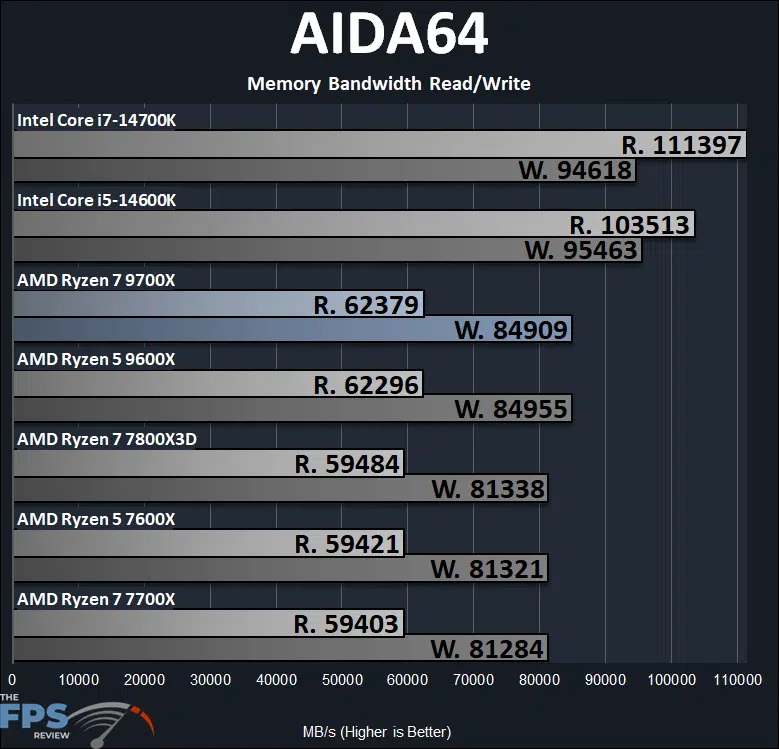AIDA64 CPU Benchmarks
Now we will look at some specific AIDA64 CPU Benchmarks that test specific parts of the CPUs. The AIDA64 Zlib test is an integer benchmark that measures combined CPU and memory subsystem performance through the public ZLib compression library. The AIDA64 AES benchmark measures CPU performance using AES (Advanced Encryption Standard) data encryption. In cryptography, AES is a symmetric-key encryption standard. AES is used in several compression tools today, like 7z, RAR, and WinZip, and also in disk encryption solutions like BitLocker.
Memory Bandwidth

In the graph above, we are testing straight-up memory bandwidth of read and write performance. The first thing we will get out of the way is that yes, Intel has much higher memory bandwidth on read and write performance, this is not new, but on the LGA1700 platform with DDR5 at 7200MT/s nothing touches the raw bandwidth they provide. Now, let’s focus on the AMD results.
The first thing you should notice is that the new AMD Ryzen 7 9700X actually provides a 5% higher read and write memory bandwidth compared to the Ryzen 7 7700X or Zen 4 CPUs. This is all tested with the same DRAM at DDR5 6000MT/s CL30, with no changes at all to the memory or motherboard, and all CPUs are running in EXPO I. Yet, the new Zen 5 CPUs are clearly running 5% higher on memory bandwidth! AMD has indeed tweaked the memory controller, and it’s better.
CPU Zlib

Zlib test is an integer-based test, and here we see the new AMD Ryzen 7 9700X is just 2.4% faster than the Ryzen 7 7700X. This puts it under the 14600K and 14700K due to their higher thread count. However, do note that the 9700X is 35% faster than the Ryzen 7 7800X3D, which has the same 8-core/16-thread count!
CPU AES

All we can say is: WOW! The new AMD Ryzen 7 9700X is 75% faster than the AMD Ryzen 7 7700X! This AES Encryption benchmark clearly shows the changes and innovations in improving the Zen 5 architecture for such workloads, AVX performance is nuts. At this performance level, the Ryzen 7 9700X is 80% faster than the 14600K and 24% faster than the 14700K. It’s also a whopping 128% faster than the Ryzen 7 7800X3D!
